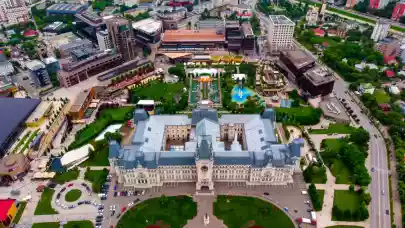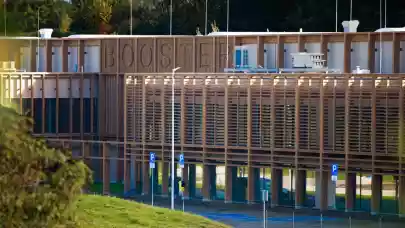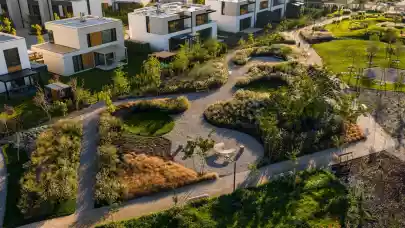
The pandemic has already shaped shopping habits and will continue to do so, mainly because of the strong impact it has had and is having at a psychological level, shifting personal priorities. Sebastian Mahu, Head of Asset Management, IULIUS Company talked to Property Forum about the trends driving Romania’s retail market and shared the developer’s plans for the future.
How has COVID-19 affected your operations? Are footfall numbers back at pre-pandemic levels?
The results for the May–September 2021 period were well above expectations; in some shopping centres, we even exceeded the 2019 results for the same period. Unfortunately, however, these periods are interspersed with months when the measures taken by the authorities have significantly impacted these indicators. The overarching conclusion is that 2021 is well above 2020, but still below 2019, following the impact of the periods of restrictions that are still in place.
On the other hand, we see that the support and assistance provided to tenants is no longer sufficient, as the retail industry is facing challenges in terms of supply chain, employees, inflation, capital management, etc. Furthermore, international tenants, in addition to the broad expertise they have as an advantage in the fight against the pandemic, also benefit from the measures taken by the authorities in their countries of origin, while in Romania such measures have yet to materialize.
As of now, November 2021, we are seeing a 25% drop compared to this summer due to the implementation of access to shopping centres based on the green certificate.

Sebastian Mahu
Head of Asset Management
IULIUS Company
Do you expect any permanent changes in consumer habits due to COVID-19?
The pandemic has already shaped shopping habits and will continue to do so, mainly because of the strong impact it has had and is having at a psychological level, shifting personal priorities. It is our role to pay attention to this fast-moving process, to understand the consumer and to deliver according to the new demands. Consumers nowadays are less focused on access to products and more on experiences, which challenges us to look for the tools to deliver just that when they visit IULIUS projects. We have the advantage of having developed mixed-use projects with multiple uses (office, retail and entertainment), that complement each other and provide public access to a modern lifestyle, with a solid experiential base.
As an immediate impact, we noticed a decrease in the average number of visits per month, but the length of visits increased. Similarly, we see that outdoor restaurants and spaces have become an important anchor, as people are looking for a safe space in terms of medical safeguards for their social interactions.
The importance of leisure, entertainment and a quality F&B selection has been on the rise for quite some time. Do you see this trend continuing in the future?
Definitely. Perhaps more than ever, consumers feel the need for personal quality time, experiences and socializing. In the IULIUS projects, these components are very well represented and are practically a pillar of the synergy of the mixed-use concept. The ground floor of the office buildings is dedicated to retail, complemented by a shopping street component, dominated by internationally themed restaurants, coffee shops and bistros, opening onto gardens.
In fact, the urban gardens are the hallmark of our projects, a major anchor for the community. They are an asset that has allowed us to offer hundreds of outdoor events and experiences that the public needs, even during the pandemic. We continue to focus on bringing optimism, quality, taste and joy to our customers, and we are confident that the trend currently dominating the market is an experiential one.
A highly topical example is the Christmas Fair we are organizing in Iulius Town Timișoara, which we hope will rival the already traditional Fairs in Sibiu and Brașov.
Retail parks have been highlighted as the best-performing asset type during the pandemic. Do you think that the long-term growth of the segment is sustainable?
It is important to develop in line with market requirements and consumer demands. This year, IULIUS Group launched Family Market, a new retail concept for our portfolio, geared towards growing communities that migrate beyond city borders. The first two shopping centres of this type are located in Iași (in Miroslava commune and Bucium neighbourhood) and add up to a total investment of € 17 million. Both projects are anchored by a supermarket and a mix of everyday services, also integrating green spaces, a hallmark of IULIUS developments, as well as investments in infrastructure upgrades and accessibility.
The format is also designed as a platform to support local producers and entrepreneurs because these last two years have shown us that small businesses need consistent support. This is also what drove us to launch the Go Local program this year, whereby we support local entrepreneurs to access IULIUS projects with a rent-free period and advertising packages.
These are community projects that also generate local and regional development, segments that leverage each other.
What are your projections for the future performance of shopping centres?
We strongly believe that success in retail and shopping centres will polarize around extremes. Super-regional centres that focus on experience, entertainment and diversity in shopping will continue to grow; at the other end of the spectrum, retail parks will be champions in terms of efficiency by offering convenience. However, the other projects that fall between these two extremes will bear the brunt of this shift, failing to provide relevant services to an increasingly demanding consumer.
On the other hand, IULIUS has focused on developing mixed-use projects that have proven their attractiveness over time and their importance for the community. This is because they are integrated concepts, with complementary and interconnected uses, parks and outdoor facilities, providing the public with access to multiple shopping, relaxation, entertainment and work experiences. Because the city and its residents embrace them as part of their daily lives, as a boost to the quality of life, such projects manage to provide a balance in terms of operations and attractiveness, even during difficult times.
We continue to believe in the adaptability of mixed-use projects and their ability to transform cities, bring people together and boost local economies, which is why we will continue to focus on such developments.
E-commerce grew significantly over the past 18 months but the penetration of online shopping is still quite low in Romania by EU standards. What is your long-term projection of online shopping’s role in the world of retail?
The online commerce boom is a great opportunity to diversify sales channels for any type of retailer and I believe we will soon see a consistent growth of this purchasing channel.
On the other hand, it is very difficult to predict to what extent it will hold a dominant position in the near future. I believe the online will be a new line of development for most retail businesses, complementing and supporting the others. The future will not be online or offline, but rather omnichannel – a concept where the consumer already has the opportunity to initiate their purchase online and complete it offline or vice versa.
What are some of the technologies available to retail operators and retailers that can help create a better and safer customer experience? Are they utilising these technologies?
As many studies and guidelines in the industry show, the consumers’ shopping experience is becoming a more important criterion than product price or quality. This is why the retail industry has one of the highest rates of integration of new technologies (such as chatbots, contactless payments, self-checkout tills, marketplace integration) and why we will soon see an increasing presence of artificial intelligence in retail processes.



